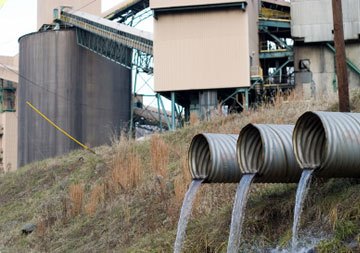Water Pollution Prevention for Your Company
- RSB Environmentals have storm water specialists are well versed in the federal and state regulations.
- We can help you with Domestic and Industrial Wastewater Permits.
- We help multiple facilities in the private and public sector, including cities, schools, farms and industrial facilities all in Texas to renew, amend or obtain for first time a Water Quality Permit.
- One of our most recent project included to obtain a CAFO permit for a Chicken Egg Farm located outside of San Antonio.
Request a free custom quote or call 1-833-910-2535














Testimonial
WHAT OUR RECENT CLIENTS SAY ABOUT US
Sachin and his team at RSB Environmental are very helpful with our company’s environmental needs. Always courteous and informative in regards to our questions.
RSB Environmental is a great company, they are easy to work with and handle all our Environmental needs in a friendly professional way. I would recommend RSB Environmental for all your company’s environmental needs.
WASTEWATER
Water quality, including both surface water and groundwater, is a growing concern for most Americans.

While relatively few industries/individuals potentially impact groundwater, virtually all industries/individuals have the potential to impact surface waters. Section 301 of the Clean Water Act requires a National Pollutant Discharge Elimination System (NPDES) storm water permit for “industrial activities” discharging pollutants into waters of the United States, as defined in 40 CFR 122.2.
Furthermore, waste water treatment plants discharging treated waste water are also regulated. Since the inception of storm water regulations in 1992, RSB Environmental professionals have dealt extensively with the EPA and state permitting and enforcement agencies to clarify permitting issues and interpretations as well as actively permitting industrial activities throughout the US under a variety of permitting programs and regulations. Our storm water specialists are well versed in the federal and state regulations.
The discharge of treated wastewater into or adjacent to water in the state must be authorized by the Texas Commission on Environmental Quality.
Permitting
- Domestic and Industrial Wastewater Permits
- Texas Pollutant Discharge Elimination System (TPDES)
- Facilities that dispose of treated effluent by discharge into waters in the state are required to obtain this permit.
- Texas Land Application Permit (TLAP)
- Facilities that dispose of treated effluent by land application (surface irrigation, evaporation, drainfields or subsurface land application) are required to obtain this permit.
- Facilities that dispose of treated effluent by land application (surface irrigation, evaporation, drainfields or subsurface land application) are required to obtain this permit.
- Concentrated Animal Feeding Operations (CAFO) Water Quality General Permit
- Water Quality Individual Permit for Concentrated Animal Feeding Operations
On-Site Sewage Facilities (Septic Systems)
Permitting, maintenance, and construction requirements for on-site sewage facilities (septic systems).
- Sewage Sludge Permits
- To process or dispose of sewage sludgeor apply it to the land, you must first obtain an individual permit. Class B sewage sludge is a classification of sewage sludge based on the levels of disease-causing organisms (pathogens). For a complete legal definition of Class B sewage sludge, see Title 30, Texas Administrative Code (30 TAC), Section 312.8
- To apply domestic septageto the land, you must first register with the TCEQ. Domestic septage is the material pumped from septic tanks and similar wastes—but not chemical toilet waste. For a complete legal definition of domestic septage, see Title 30, Texas Administrative Code (30 TAC),Section 312.8.
- To apply water treatment sludgeto the land, you must first register with the TCEQ. Water treatment sludge is generated during the treatment of surface water or groundwater for potable use. For a complete legal definition of water treatment sludge, see Title 30, Texas Administrative Code (30 TAC), Section 312.8.
- To apply Class A or Class AB sewage sludgeto the land, you must first notify the TCEQ. Class A or Class AB sewage sludge has been treated to reduce pathogens and its attractveness to vectors to a greater extent than is achieved in Class B sewage sludge. For a complete legal definition of Class A or Class AB sewage sludge, see Title 30, Texas Administrative Code (30 TAC), Section 312.8
Project Experience:
RSB Environmental has help multiple facilities in the private and public sector, including cities, schools, farms and industrial facilities all in Texas to renew, amend or obtain for first time a Water Quality Permit.
One of our most recent project included to obtain a CAFO permit for a Chicken Egg Farm located outside of San Antonio. The system consist into a septic system which will clean the water, then will pass to an aerobic system to finalize in land irrigation.
- The CAFO permit requires multiple studies and calculation some are:
- Nutrient Management Plan
- Soil analysis of LMU
- Wastewater Testing
- Solid waste management plan
- SPCC
- Water balance & System design calculations
- Retention control structure design calculations
- USGS Topographic maps, site map, LMU map
- Recharge Feature Certification with supporting documents
- Odor Control Plan.
Our Registrations and Certifications







Industrial Hygiene

Engineering

Safety

Environmental Compliance

Frequently Asked Questions
What is wastewater compliance?
Wastewater compliance refers to meeting the regulatory requirements set by federal, state, and local authorities in the United States for the collection, treatment, and discharge of wastewater from various sources, such as industrial facilities, municipal sewage systems, and stormwater runoff.
Which US agency oversees wastewater compliance?
The primary agency responsible for overseeing wastewater compliance is the Environmental Protection Agency (EPA). The EPA establishes and enforces regulations under the Clean Water Act (CWA) and the National Pollutant Discharge Elimination System (NPDES) program to ensure the proper treatment and discharge of wastewater.
How do organizations obtain permits for wastewater discharge?
Organizations that discharge wastewater into the environment must obtain a permit under the NPDES program. The permitting process involves submitting an application to the appropriate state agency or the EPA, providing details about the facility, wastewater generation, and proposed treatment methods. Once the permit is issued, organizations must comply with the permit’s terms and conditions, including monitoring, reporting, and implementing best management practices.
What are the consequences of non-compliance with wastewater regulations?
Non-compliance with wastewater regulations can lead to severe consequences, including fines, penalties, and even criminal charges for willful violations. The EPA and state agencies have the authority to enforce compliance, impose sanctions, and order corrective actions to remedy any violation of the Clean Water Act or NPDES permit requirements.
How can organizations ensure they remain compliant with wastewater regulations?
Organizations can ensure compliance with wastewater regulations by implementing a robust environmental management system, regularly monitoring their wastewater discharge, staying up-to-date with regulatory changes, and training staff on proper procedures and best management practices. Additionally, organizations should work closely with environmental consultants and regulatory agencies to address any concerns or issues that may arise.





